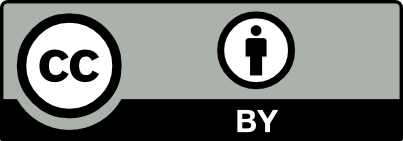Prevention of Sexual Exploitation and Abuse (PSEA) online course: project files

About this course
We are pleased to share with you the modules and source files of the course on the Prevention of Sexual Exploitation and Abuse (PSEA) revised in 2020 through a collaboration between UNICEF, UNHCR, UNDP, UN Women and UNFPA. We thank the UN Secretariat for allowing us to build on their original training package.
In addition to substantive changes, the new course has been designed to ensure:
- Optimal use on all devices (computer, tablet and smartphone)
- A good level of accessibility (keyboard navigation, screen reader compatibility, high contrast and zooming options)
- Ease of maintenance and translation, using Articulate Rise, a standard authoring tool, template based.
You can self-register on Agora, UNICEF's learning platform, to access the modules: https://agora.unicef.org/c/PSEA2020
A course available to all agencies and partners
This course is intended to reach all individuals working for or with the UN system: staff members, consultants, vendors and other partners.
Modules are shared under Attribution 4.0 International (CC BY 4.0).

In short, anyone can use the modules as they are, hosting them on learning platforms or websites as needed. Partners can translate the course - more details about translations are provided below on this page.
Please note:
Only UN entities are permitted to use UN agencies’ logos
Adapted or translated modules cannot say or suggest they were created by the UN agency that authored the original work, such as by using a UN logo
Adaptations include changes, additions, and deletions to the original text, however minor
Translations and adaptations should identify all UN authoring agencies using the text below
Accessing the course files
Click on the links in the following table to download the course files you need. Additional language versions will be added as they become available.
English (Master version)
- PSEA_EN_SCORMS_2022
- All_scripts_EN_DOCX
- PSEA course on Agora
- PSEA Agora info page EN
- XLIFF Articulate Rise labels
- Course illustrations source files
Localized versions
| SCORM files | Agora course link | |
|---|---|---|
| Arabic |
PSEA_AR_SCORMs | PSEA AR course on Agora |
| Burmese |
PSEA_MY_SCORMs | PSEA MY course on Agora |
| Chinese | PSEA_ZH_SCORMs | PSEA ZH course on Agora |
| Czech | PSEA_CS_SCORMs |
PSEA CS course on Agora |
| French |
PSEA_FR_SCORMs | PSEA FR course on Agora |
| Greek | PSEA_GRE_SCORMs | PSEA GRE course on Agora |
| Hungarian | PSEA_HU_SCORMs |
PSEA HU course on Agora |
| Polish | PSEA_POL_SCORMs |
PSEA POL course on Agora |
| Portuguese | PSEA_PT_SCORMs | PSEA PT course on Agora |
| Romanian | PSEA_RO_SCORMs | PSEA RO course on Agora |
| Russian |
PSEA_RU_SCORMs | PSEA RU course on Agora |
| Italian |
PSEA_IT_SCORMs | PSEA IT course on Agora |
| Serbian |
PSEA_SR_SCORMs | PSEA SR course on Agora |
| Slovak | PSEA_SK_SCORMs |
PSEA SK course on Agora |
| Slovenian | PSEA_SL_SCORMs |
PSEA SL course on Agora |
| Spanish | PSEA_ES_SCORMs | PSEA ES course on Agora |
| Thai | PSEA_TH_SCORMs | PSEA TH course on Agora |
| Turkish | PSEA_TR_SCORMs | PSEA TR course on Agora |
Translating the course
The most effective way to translate this course is to work with the XLIFF files exported from Articulate Rise. XLIFF is a file standard that allows software such as Articulate Rise to identify and extract text elements so that they can be easily translated without touching the formatting.
XLIFF files must be downloaded from a copy of the original modules. If you want to receive XLIFF files, please email the Agora Team (agora@unicef.org) with the language you will translate the course into. Please, do not use XLIFF files intended to be for other languages since importing the translation won't work.
In short, to translate the course, you will need the following:
- XLIFF files (6 in total). Contact Agora to receive the specific files for your language.
- The summary page text. Please download it from here.
Professional translators have access to XLIFF editors, but there are some free, open-source solutions:
Once the files have been translated and reviewed, they will need to be uploaded in the copy of the modules, and we will share access for final review/editing. Contact the Agora team during the process to exchange files and review links.
UN Agencies can get a copy of the Rise project files upon request. An active Articulate 360 subscription is needed to access and use the files. Please send a message to agora@unicef.org indicating the email address linked to your Articulate 360 account.
Translation projects and their status:
| Language | Lead organization(s) | Status |
|---|---|---|
| Arabic |
UNHCR |
Completed |
| Burmese |
UNICEF / UNFPA | Completed |
| Chinese | UNICEF | Completed |
| Czech | UNHCR | Completed |
| French | UNFPA | Completed |
| Greek |
UNICEF |
Completed |
| Hungarian | UNHCR | Completed |
| Italian | UNICEF | Completed |
| Polish | UNHCR | Completed |
| Portuguese | UNFPA | Completed |
| Romanian | UNHCR | Completed |
| Russian | UNHCR | Completed |
| Serbian |
UNICEF |
Completed |
| Slovak | UNHCR | Completed |
| Slovenian |
UNHCR | Completed |
| Spanish |
UNDP |
Completed |
| Swahili |
UNICEF | In progress |
| Thai | UNICEF | Completed |
| Turkish |
UNICEF |
Completed |
If you have questions about this project, please contact agora@unicef.org.